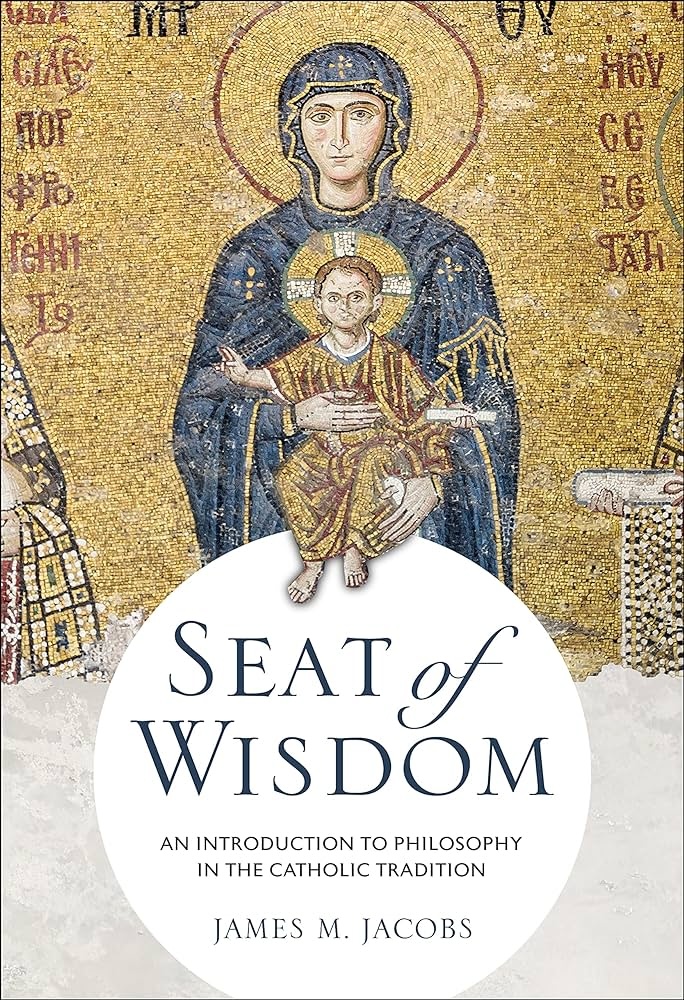William of Ockham – the fourteenth-century Franciscan friar, philosopher, and theologian – has become the favored whipping boy of a certain brand of Catholic scholarship and apologetics. Who could have predicted that Ockham’s rejection of universals (nominalism) and emphasis on God’s supreme omnipotence at the expense of the divine intellect (voluntarism) – esoteric philosophical concepts if ever there were ones – would provoke such censure, even centuries after his death?
But censure Ockham has received – from historian Brad S. Gregory in his celebrated The Unintended Reformation to biblical scholar Scott Hahn’s Politicizing the Bible, co-authored with ethicist Benjamin Wiker. Relying on Gregory, Hahn, and Wiker, I myself take Ockham to task in my book The Obscurity of Scripture for his role in creating the philosophical framework that helped give birth to the Reformation.
It’s no surprise, then, that philosopher James M. Jacobs in Seat of Wisdom: An Introduction to Philosophy in the Catholic Tradition, after describing several philosophical errors, labels nominalism “the most perennially pernicious of these philosophical assumptions.” That’s a remarkable claim, especially given that Ockham was neither an Enlightenment skeptic nor an atheistic deconstructionist. Ockham was a well-read Catholic cleric, though Pope John XXI excommunicated him over a debate regarding Apostolic Poverty.
Nevertheless, Jacobs makes a compelling case. Nominalism is a recurring theme across this four-hundred-page book, but it is by no means central. Jacobs has written an excellent, accessible introduction to the extensive role of philosophy in Catholic thought.
In early chapters, he explains the relationship between reason and revelation and the origins of what is sometimes called “the perennial philosophy,” meaning the principles of classical philosophy and the methods of analysis employed, which can be traced to ancient Greeks such as Plato and Aristotle, and are embraced by the Catholic tradition.
In later chapters, Jacobs tackles a variety of classical philosophical problems, from the search for being, to the meaning of truth, to the nature of man. The last several chapters ably discuss virtue, political philosophy, God, and the problem of evil.
Yet what caught my eye across these varied topics was the regular return to nominalism as a perennial temptation:
Nominalism assumes that there is no objective order in creation. It reflects not a wonder or awe at cosmic goodness but rather a pessimistic doubt about reality that demands that people impose order on an otherwise unintelligible creation. This entails that the concepts of truth and goodness are ultimately arbitrary constructs the philosopher creates to prescribe an order for a fractious world.
Jacobs calls nominalism a “universal acid” that “disintegrates the coherence of philosophy in every area: metaphysics, epistemology, ethics, politics, and aesthetics.” Assuming nature has no intelligible order leads to the conclusion that all attempts to find meaning in human existence are futile.
Thus, for example, in the nominalist emphasis on divine sovereignty: God is capable of doing anything, and is not constrained even by his own being, and thus does not need to use forms as universal causal principles. And if there are no forms, there are no universal natures such as humanity – every single being is a radically unique individual not limited by human nature. (Sound familiar?)
That, in turn, dramatically limits our ability to know reality, because without necessary causal relations, we can never understand what is behind our sense experience. There is no rational inference, only the mathematical analysis of material bodies. Everything else is pure speculation.
Nor, by extension, can we know the existence of God, since the classical proofs for His existence also derive from causation (e.g. the argument from motion, the argument from contingency, etc.). And if God’s existence is not a truth accessible via reason, then we would access Him only by faith (called fideism), and we would possess no means of persuading others of Him except by appealing to their will or emotions.
Further, if the universe is one in which God possesses absolute freedom to act arbitrarily, He would be free to declare good evil and evil good. In other words, the more we follow Ockham’s principles, the further we get from an orthodox Catholic understanding of a loving God and move towards an arbitrary tyrant.
Nominalism goes far beyond theology, affecting philosophy, economics, psychology, and politics, among other disciplines. David Hume’s skepticism denied that we can know the nature of things, calling such thinking “sophistry” and “illusions,” and influencing the relativism of our contemporary culture. Thinkers such as Marx and Freud (even if unknowingly) followed the materialist premises of Ockham.
The elimination of a common human nature leads to the belief that society exists for the sake of the individual (libertarianism), or that the individual exists for the sake of society (collectivism as found in communism or fascism).
Given all of this, it seems appropriate to lay at least some of the blame for our contemporary problems at the foot of William of Ockham and nominalist philosophy. Though we might also ask, so what? It’s not as if today’s skeptics, socialists, or sexual deviants are reading Ockham’s works, or would even describe themselves as nominalists. Trying to persuade them of such would likely engender confusion and scoffing more than illumination and change of heart.
Perhaps the more salient lesson for us then is that going wrong in our thinking, even if we mean well, can have unpredictable consequences. In Ockham’s case, it wasn’t as if he hadn’t been warned: a pope excommunicated him for his intransigence on a controversial doctrinal subject. And yet Ockham persisted, joining a band of Franciscan dissidents until his death in 1347.
Medieval philosopher Bernard of Chartres is credited with originating the saying that we are “dwarfs perched on the shoulders of giants,” who should carefully contemplate and build upon the brilliance of our predecessors. Ockham erred in repudiating that intellectual heritage in favor of novelty, and it cost not only him, but untold others who followed after.
In prayerful humility, we should be wary of doing the same.
















